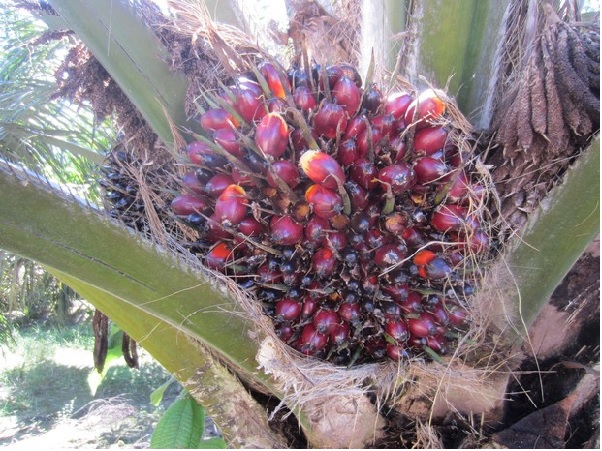NIFOR, short for Nigerian Institute for Oil Palm Research, is a federal parastatal under the Federal Ministry of Agriculture and Rural Development. NIFOR’s chief mandate is research into genetic improvement, production and processing of oil palm, raphia, date, coconut, shea and ornamental plants. This federal parastatal has its main office in Benin, Edo, as well as 6 substations and 4 experimental stations (also known as test sites) across the country. In this article, we’ll be listing the branches of NIFOR in Nigeria as well as which of the mandate crops, they focus their research on. Read on.

The list of NIFOR branches in Nigeria would be mentioned below:
-
NIFOR Main Station, Benin (Oil Palm Tree)
Address: KM 7, Benin-Akure Road, Benin, Edo State
Email ID: info@nifor.gov.ng
-
NIFOR Substation, Abak (Oil Palm Tree)
Address: Abak, Akwa Ibom State
Email ID: info@nifor.gov.ng
-
NIFOR Substation, Wamba (Oil Palm Tree)
Address: Wamba, Nasarawa State
Email ID: info@nifor.gov.ng
-
NIFOR Experimental Station, Agbarho (Oil Palm Tree)
Address: Agbarho, Delta State
Email ID: info@nifor.gov.ng
-
NIFOR Experimental Station, Onishere (Oil Palm Tree)
Address: Onishere, Ondo State
Email ID: info@nifor.gov.ng
-
NIFOR Substation, Badagry (Coconut Palm Tree)
Address: Badagry, Lagos State
Email ID: info@nifor.gov.ng
-
NIFOR Substation, Onuebum (Raphia Palm Tree)
Address: Oneubum, Bayelsa State
Email ID: info@nifor.gov.ng
-
NIFOR Experimental Station, Otogbo (Raphina Palm Tree)
Address: Otogbo, Delta State
Email ID: info@nifor.gov.ng
-
NIFOR Substation, Dutse (Date Palm Tree)
Address: Dutse, Jigawa State
Email ID: info@nifor.gov.ng
-
NIFOR Substation, Bida (Shea Tree)
Address: Bida, Niger State
Email ID: info@nifor.gov.ng
-
Brief History of NIFOR
As far back as 1939 was when the groundwork for NIFOR started. At that time, the British Colonial authorities established the Oil Palm Research Station (OPRM) under the then Nigerian Department of Agriculture. Twelve years later, in 1951, per the directives of Ordinance (Nigeria) No. 20 of 1951, OPRM was transferred to the West African Research Organization (WARO) as the West African Institute for Oil Palm Research (WAIFOR) to undertake research into and investigate the problems and matters relating to oil palm and its produce.
Upon dissolution of WARO as member states had gained independence, WAIFOR became the Nigerian Institute for Oil Palm Research per the Nigerian Institute Act No. 33 of 1964. The scope of NIFOR became solely confined to the territory of Nigeria and its responsibilities extended beyond oil palm, including other economic palms like coconut, raphia, date, shea, and all other palms as the Government may from time to time determine.
In 1973, NIFOR came under the aegis of the now-defunct Agricultural Research Council of Nigeria (ARCN) per the directives of the Agriculture Research Institutes Decree No. 35 of 1973. Four years after, the Agriculture Research Institutes Decree No. 35 of 1973 was repealed, and NIFOR the National Science and Technological Development Agency (NSTDA) per the directives of Decree No. 5 of 1977.
With the return of civilian rule, NIFOR became a parastatal under the Federal Ministry of Science and Technology per the guidelines of the National Science and Technology Act No. 1 of 1980. For a brief period in 1984, the Federal Ministry of Science and Technology merged with the Federal Ministry of Education. In 1992, NIFOR came under the aegis of the Federal Ministry of Agriculture, which remains to this day.
-
What are the Roles Set Out for NIFOR?
NIFOR focuses on conducting research on mandate crops, including Shea, Oil palm, Coconut palm, Raphia palm, and Date palm to achieve the following:
- Improvement of genetic potentials of the specified crops, and production of their seeds for distribution to farmers;
- Improvement of agronomic and husbandry practices including planting, cultivation, harvesting and soil fertility management techniques, and farming systems in relation to cultivation methods;
- Study of the ecology of pests and diseases of the mandate crops and development of their control measures;
- mechanization and improvement of the methods of cultivation, harvesting, processing, preservation & storage of products of our mandate crops;
- Improvement of the utilization of by-products;
- Design and fabrication of simple implements, machines and equipment for post-harvest processing;
- Integration of the cultivation methods of the mandate crops into farming systems in different ecological zones and its socio-economic effects on the rural population; and
- Any other matter relating to production, processing and utilization of palm products of our mandate crops.
Going by the mandates above, below are the functions of NIFOR:
- Produces seeds and seedlings of the mandate crops for distribution to farmers;
- Manufactures small-scale processing equipment for palm fruits, coconuts, palm wine bottling, soap making, date juice extraction and bottling.
- Undertakes agricultural extension services through liaison with Federal and State agencies, primary agricultural producers, industries, and other users of research results ;
- Organises technical and vocational courses in palm production and related fields
- Provides laboratory and other technical services to farmers, agro-based industries and other parties requiring these services;
- Collaborates with research institutes, Universities and other relevant organizations
- Carries out soil and foliar analysis for soil fertility management and pests and diseases diagnoses and control for smallholder farmers and large estates,
- Performs feasibility studies, general consulting and management services for plantation development and mill installation.
-
Who is the Executive Director/CEO of NIFOR?
At the helm of affairs of NIFOR seats Dr Celestine E. Ikuenobe as the Executive Director. He holds a doctorate in Agronomy from the University of Ibadan. His work experience as an agronomist prior to becoming the CEO of NIFOR was centred on oil palm, coconut, date, raphia and shea tree plantation agriculture.
Aside from his work experience as an agronomist, Dr Celestine E. Ikuenobe is a renowned researcher who boasts numerous publications in both local and international journals. His research works focused on weed biology and management, and plant nutrient and soil moisture management. Some of the NIFOR boss’ work forms the basis of many plantations’ agronomic practices for plant growth and yield improvement.